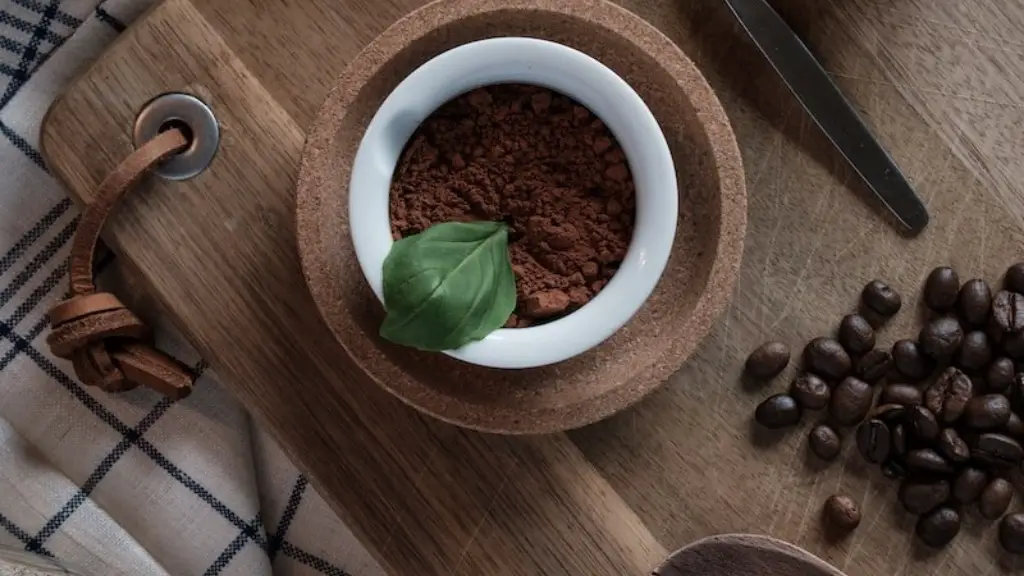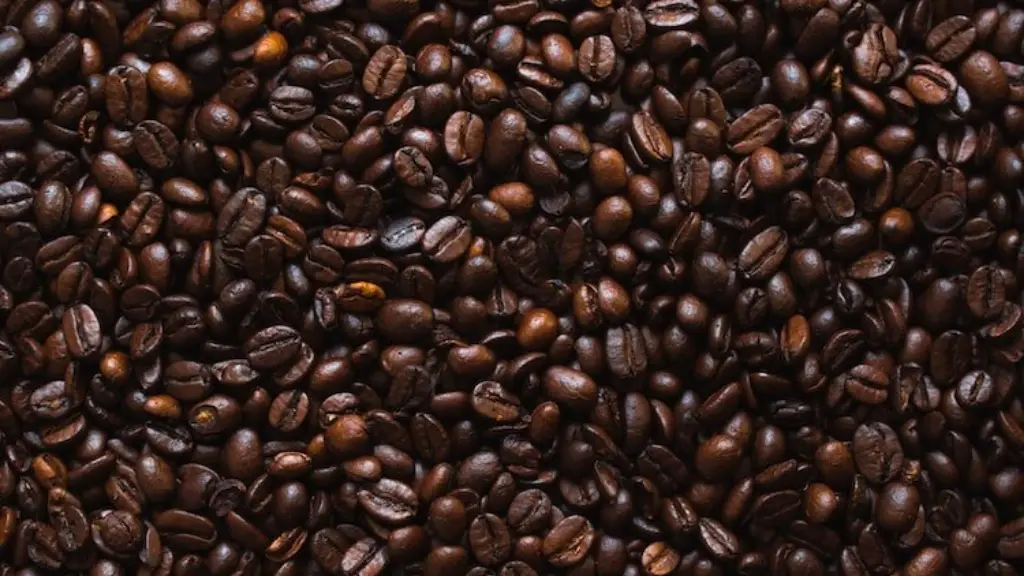Stomach pain is a common but unpleasant side effect for some people when drinking coffee. This can deter people from enjoying coffee, but thankfully there is a way to deal with this uncomfortable symptom. In this article, we will dive into the reasons why some people experience stomach pain after drinking coffee, what they can do to prevent it and explain why these strategies work.
Before we get into the details, let’s start at the start and explore what the stomach is and its function. The stomach is part of the digestive system and its primary role is to break down food and liquid before it is passed to the intestines for further digestion. It does this by producing gastric acid, which is a mix of hydrochloric acid and enzymes, which breaks down the food into small pieces that can easily be absorbed by the intestines.
In order to understand why coffee affects the stomach, we must consider the effect it has on gastric acid production. Caffeine is a known stimulant, which when ingested can increase gastric acid production, resulting in an acidic environment in the stomach. This can be the cause of stomach pains, as the gastric acid has a tendency to damage the stomach lining if it is present in an excessive amount. In some people, this presence of gastric acid often causes pain and discomfort.
Now that we are familiar with the effects of caffeine on stomach acid production, let’s look at what we can do to decrease the unpleasant side effects caused by drinking coffee. The first step is to be mindful when consuming coffee. Drinking too much in one sitting can cause a spike in gastric acid production. Therefore, exercising moderation when drinking coffee is important, as this can help reduce the risk of experiencing stomach pains.
Additionally, trying different types of coffee such as cold brew or decaf, can help to alleviate potential symptoms. Cold brew is preferred as the low acidity allows the drinker to enjoy the beverage without experiencing an uncomfortable reaction from the stomach, while decaf is of course entirely caffeine free. Finally, drinking coffee alongside food, as well as taking in lots of fluids and sticking to moderate portion sizes, can be beneficial for those looking to avoid stomach pain due to coffee intake.
Caffeine Intake and Side Effects
Now that we have explored the reasons why coffee and caffeine can cause stomach pains, we are going to look at how much caffeine you should be consuming on a daily basis and the potential side effects of excessive caffeine intake. The recommended caffeine intake per day should be around 400 mg or 4 cups of coffee.
When it comes to the side effects of too much caffeine, it is important to know that these can vary from person to person. However, some of the common side effects can include headaches, anxiety, insomnia, increased heart rate, irritability and nausea. Therefore, it is worth keeping in mind that drinking more than 400 mg of caffeine per day can be too much and should be avoided.
If you find yourself experiencing any of the aforementioned side effects, it is best to cut down on your caffeine intake and perhaps switch to decaffeinated coffee, as this can help to reduce the effects. Speak to your doctor if you are concerned about the amount you are drinking, as they can give you tailored advice.
Other Stimulants
Caffeine is not the only stimulant out there that can affect stomach acid production. Other stimulants such as nicotine can have the same effect. Nicotine is most commonly known as an addictive chemical found in cigarettes, cigars and some e-cigarettes, but it can also be found in products such as chewing tobacco and long-term nicotine replacements, such as patches and gums.
Nicotine can have an irritating effect on the stomach, as it can increase the production of gastric acid, which in turn can cause stomach pain and discomfort. To reduce the risk of experiencing stomach pains when consuming nicotine, the same strategies outlined for avoiding caffeine-induced stomach pain can be used. It is worth remembering that nicotine is an addictive chemical, so it is important to seek help from a medical professional if you are looking to quit.
Health Benefits of Coffee
Coffee does not have a universal effect on everyone as is evident from the effects experienced by some people after drinking it. However, there are also health benefits associated with drinking coffee, which should not be overlooked. As a stimulant, it can help to increase alertness and can even help to boost mood. It is also a great source of antioxidants and studies suggest that those who drink coffee regularly may benefit from a lower risk of diseases such as heart disease, diabetes and even cancer.
However, if your stomach pains are due to excessive caffeine consumption, it is worth reducing your intake to ensure that you are not experiencing any adverse effects. As such, it is important to remember to consume it in moderation and to choose options such as decaffeinated coffee and cold brew.
Acidity of Coffee
In addition to the stimulative effects of caffeine, the acidity of coffee can also play a role in causing stomach pains. A higher acidity can lead to an unpleasant burning sensation in the stomach, which can leave someone feeling uncomfortable. The same strategies outlined previously can be used to address this problem, such as drinking coffee with food, staying hydrated and drinking decaffeinated coffee.
However, the acidity of the coffee can also be reduced by using cold water when preparing coffee. Cold water takes longer to extract the flavours from the coffee grounds and as such, the coffee produced will be less acidic than if it was made with hot water. Furthermore, cold brew coffee is also a low acidity option.
Choosing the Right Coffee
It is worth noting that not all coffee is the same and some beans can contain more caffeine and acidity than others. For example, Arabica coffee beans typically have a lower caffeine content and acidity than Robusta beans, making them a great option for those looking to avoid potential stomach pains. Similarly, darker roasts are usually lower in acidity, so if you find yourself experiencing a burning sensation after drinking coffee, try switching to a darker roast.
Organic and Fairtrade-certified coffee beans are also becoming increasingly popular and are typically grown using sustainable and ethical farming practices. Organic coffee beans are often of a higher quality and less processed, resulting in a superior tasting cup of coffee.
Bitter Taste of Coffee
Coffee can sometimes have a bitter taste due to various factors, such as the bean, roast and brewing method. Bitter coffee can be off-putting, especially for those who are sensitive to its effects. However, there are some steps you can take to reduce the bitterness. If you are using ground coffee, switch to whole beans and grind them yourself for a fresher taste. Also, try brewing with cold water instead of hot and experiment with different brewing techniques to find the one that suits you best.
If you are still experiencing a bitter taste after following these steps, adding a small amount of sugar to the cup can help to offset the bitterness. As always, make sure to do this in moderation as excessive sugar consumption can increase your risk of developing health problems.
Conclusion
Why does my stomach hurt when drinking coffee? In this article we explored the various reasons why this could be the case. Firstly, excessive intake of coffee can lead to an increase in gastric acid production, resulting in stomach pains. Additionally, the type of coffee being consumed can affect how it is processed in the body, with certain beans and roasts resulting in higher levels of acidity. Lastly, the brewing method can also determine the taste and potency of the coffee.
It is important to remember to consume coffee in moderation, and if you are experiencing any adverse reactions or side effects, it is best to speak to your doctor.





